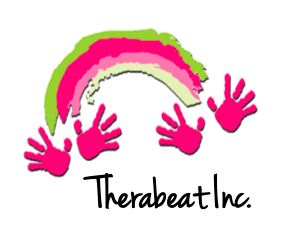Music Therapy at Your FacilIty
Our Music Therapists will use evidence-based research on clinical techniques with patients within the Substance Use and Mental Illness context to support the holistic treatment of your patients on a group and individual level. Our team will use music to create a non-threatening and motivating therapeutic environment to address the following goals:
Increase Self Esteem and Self Efficacy: Music Therapy can support the development of positive identity by promoting well-being, supporting the patient in finding their own meaning in their experiences, fostering experiences of positive emotions with peers, and empowering the patient by expanding on their strengths, interests and talents.
Maintain Physical Well Being: Participation in Music Therapy sessions allows the patient to alleviate feelings of stress, tension, isolation, self-centeredness, and alienation. A group drum circle can be beneficial in maintaining physical well-being, and can include chanting, call/response techniques, non-verbal communication, and opportunities for spontaneous play based on how they feel.
Improve Emotional Well Being: Structured Music Therapy provides a safe environment to experience and process both negative and positive emotions. Music Therapists utilize the elements of tension and release inherent in music in order to facilitate emotional catharsis and create an open atmosphere for exploration and discussion of different emotions. Music Therapists use lyric analysis, songwriting, and music with creative arts as therapeutic interventions to address this goal
Facilitate Group Communication: Music Therapists use music as a nonverbal form of communication to help create a therapeutic relationship between patient and therapist, as well as relationships between patients within the group.
Increase Group Cooperation: Music provides a motivating atmosphere for patients within the Music Therapy group to cooperate and build trust with one another in a cohesive manner. This goal is addressed through group singing and instrument play of preferred music within the group.
Provide Aesthetic Experience: Music Therapy sessions cater to the human need for beautiful or artistic experiences. Music Therapists provide a holistic treatment for patients by facilitating an atmosphere for patients to create and experience an aesthetic together through songwriting, music relaxation, therapeutic singing, and lyric analysis.
Enhance Treatment Motivation: Music Therapists use patient-preferred songs with lyrics relating to clinical objectives in order to facilitate a lyric analysis intervention. Through lyric analyses and songwriting opportunities, Music Therapists can enable patients to recognize their problems, enhance their desire and motivation to participate in treatment, and prevent relapse.


